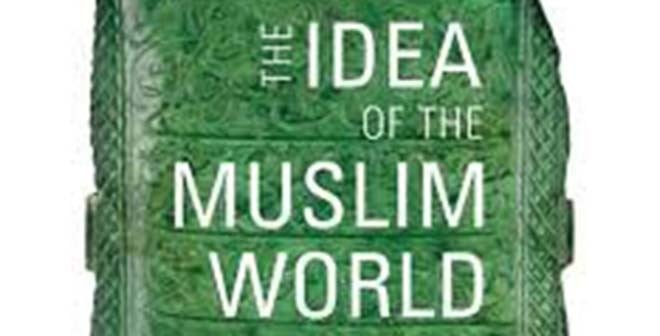
Reflections on transnational Muslim thought

Pan Islamism brought with it a litany of spin-offs in the form of a few themes generally reckoned to be of universal import. The first generation of pan-Islamic writers peddled these themes with extraordinary zeal and, as a result, they became a core ideology reflecting in "much of transnational Muslim thought".
Cemil Aydin in his brilliant work The Idea of the Muslim World: A Global Intellectual History enumerates six such themes. In this column, I will confine myself to three of them. ‘The idea of an Islamic civilization’ is the most significant among those themes. All it (an Islamic civilization) connotes is its origin in the modernist context. One must bear in mind that the Muslim intellectual strivings were essentially cast in ‘reactive posture’. The fact that the people having undergone political decline are bound to be ‘reactive’ instead of being ‘proactive’.
Throughout the medieval times, the Empire was the principal determinant of their identity which came about as a result of negotiation with other cultures and communities. Thus, a Muslim inhabiting one Empire subscribed to a culture and civilizational pattern that was essentially different from the Muslims living in some other Empire.
It was only after the belligerence of European writers like Ernest Renan or William Muir towards the Muslims, arguing for the "essential inferiority of Islam vis a vis the West", which prompted the contemporary Muslim intelligentsia to come up with such an epistemic category like Muslim Civilization. Thus the project of Muslim history-writing took up a new incarnation.
Aydin reveals to us the new frame of reference, in which Muslim history manifested itself, "This history started with Muhammad (PBUH) but centred on the scientific and philosophical achievements of the late Abbasid period". A host of Muslim intellectuals, Syed Ameer Ali being one of them, argued that "modern European civilization would never have gotten off the ground without the work of Abassid-era thinkers". Similar allusions were made with respect to Muslim scientists and philosophers from Andalusia (Spain). Islamic civilization imbibed Greece influences, synthesised them with "rational and humanistic Islamic values" and, during the acme of Muslim ‘civilization’ contributed to "the emergence of the modern West".
That’s how a criterion of civilizational worthiness and dignity was established, with the intent to dispel the impression of Muslims being racially and civilizationally inferior.
Read also: Modern vs traditional
The second such theme pertains to ‘Islam as a universal religion’. In the era of modernity, Islam was defined as a code of life relevant and workable "for all people, in all places, at all times". That conception was deployed to "dispute the claims of both Christian missionaries and the secular Orientalists for whom the religion was a racial marker of the Muslim world" and the "inferiority of Islamic tradition" a justifiable reason for singling out Muslim subjects residing within and across European empires.
In response to such ignominious perception, Muslim thinkers of the modern times propounded rationality, modern civilization and progress as the central postulates of Islam. Obviously, one can see modern Islam being re-visited in the light of enlightenment ideals. Thus the idea of a universal Islam was given currency among the Muslim literati. Besides, the ‘real’ Muslims, according to Modernist Muslim reformers like Sir Syed Ahmed Khan, epitomised enlightenment and tolerance.
The reinvention of Islam as a world religion went on to embrace the notion of a united global faith which was a ploy to ward off the fear of actual diversity, seen as a source of division and therefore weakness. Thus, consensus was viewed as a sine qua non for strength under the new imperial dispensation. So Islam, to the writers imbued with pan-Islamist ideas, was the most internally consistent, rational and systematic religion, which had hardly any space for miracles or saints. Syed Ameer Ali’s The Spirit of Islam (1891) and Muhammad Abduh’s Theology of Unity (1897) were representatives of such line of thinking.
Another theme that reverberates among the current Muslim consciousness is the ‘eternal conflict between the Muslim world and the Christian West’. That conflict and its eternal resonance among Muslims are quite recent on the scale of historical time. One cannot deny the importance of Crusades, and Medieval Muslim historians too have mentioned it, but as Aydin states, it "was never foremost in their accounts".
It was only by the early 20th century that the Muslim history was given a new inflection "in relation to a Christian European centre, from the perspective of the Mediterranean and Eastern European borderland experiences". That, to a certain extent, was a response to the historical discourse advanced by the Europeans whereby the military encounters with Muslims were the prime factor in constituting European identity. Thus the civilization conflict was the discursive lens through which global history was explained.
This discourse of the ‘clash of civilizations’ was at first articulated through the European narratives which highlighted the need to liberate Ottoman Christians from the "oppressive Muslim rule". Russian and Habsburg propaganda was also a big contributory factor augmenting the antithetical posture between the Muslims and the West.
Initially, Muslim writers did not buy into the eternal conflict narrative. But, eventually, they too started interrogating modern imperialism from the perspective of Christian attacks on Muslims. It is also important to underline that the clash of civilization theories emanated from the courses of International Affairs taught at the European and American Universities.
Thus, it appears quite natural that the narrative centered on pan-Islamism was churned out by Muslim thinkers trained in Europe. Allama Iqbal, Muhammad Ali Jauhar and Chaudhary Rahmat Ali exemplified such a trend among the Indian Muslims. That line of thinking produced ‘anti colonial internationalism’, which was a far more inclusive phenomenon and transcended the Muslim specificity. That ideology had the capacity to strike commonality among a committed anarchist, positivist or socialist and a Muslim. Such anti-west articulation was witnessed in the Far Eastern region, on which we will reflect some other time.